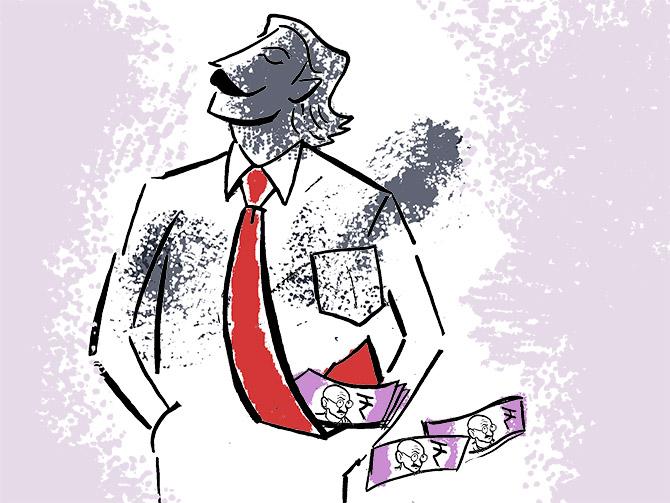 | « Back to article | Print this article |
There has been an exponential increase in the use of technology to validate financial numbers, with a greater reliance on electronic evidence, use of live videos where possible, data analytics, and project management software to overcome the physical limitations in verifying transactions and accounts.

From live video feed and digital documentation to finding local firms, audit companies are exploring all options available to audit financial statements of their clients during the COVID-19-induced lockdown.
There has been an exponential increase in the use of technology to validate financial numbers, with a greater reliance on electronic evidence, use of live videos where possible, data analytics, and project management software to overcome the physical limitations in verifying transactions and accounts, said experts.
Sai Venkateshwaran, partner and head, CFO Advisory at KPMG in India, said the pandemic had driven all finance functions out of the office without much notice, and most had limited experience of working in a virtual environment.
While many companies are sharing documents digitally, some have also opened their servers to auditors to access the data they require.
One of the hurdles in performing the audit is the physical verification of inventory and balance sheets.
While a lot of it can be done online, auditors are required to verify inventory once a year.
The Institute of Chartered Accountants of India (ICAI) in a recently issued set of guidelines had suggested the alternative of rolling back stock by adjusting sales and purchases of April and May to derive the closing figure for March.
“If there is something that auditors could not check, then they can either mention it as ‘emphasis of matter’ or ‘key audit matters’...This is very different from giving a disclaimer, which has a negative connotation.
"The auditor is stating his opinion while suggesting that a particular matter be investigated again,” said Atul Gupta, president of ICAI.
Audit firms on their part are either tying up with the internal audit teams of companies or looking for reliable local firms that are available where they need to be present physically.
“We are issuing instructions to internal auditors if they are present at the plant/warehouse and having them do that work for us under our supervision, which is in compliance with the applicable standards.
"When that is not possible, we look for a competent local firm that is objective and independent, to support us in physical verification,” said Govind Ahuja, partner at SR Batliboi.
Auditors are also asking clients to postpone board meetings, to buy time to finish reports.
“While we discussed the timelines for FY20 closing with many of our clients, several moved their meetings to late May or June on their own.
"As lockdowns have been extended in several locations and there is uncertainty over reopening, we are discussing alternative audit procedures with our clients to enable finalisation of their results,” Ahuja added.
Sebi had extended the deadline for the final audited report by a month to June 30.
“If the situation persists, then I’m sure the deadline can be extended again.
"We are issuing FAQs to auditors to address queries on how they should go about the process in these times,” the ICAI president said.
While there have been savings on the cost of visiting locations, hiring local firms has increased the cost of audit.
“If the lockdown gets extended further, we may go back to the client to discuss reporting timelines... Clients are challenged with managing their cash flows and normalising their operations,” Ahuja said.
Technologically challenged
For auditors, the biggest challenge has been that digitalisation is inadequate in many enterprises, hampering the ability to share information, said experts.
“Auditors are prepared to work remotely, but auditee preparedness is the key,” said MP Vijay Kumar, chief financial officer, Sify Technologies.
For auditors the switch has not been easy.
“A large number of auditors have a conventional mindset and are not tech savvy. So this lockdown has forced a change in working,” says Suresh Surana, founder, RSM India.
Securing laptops and desktops with VPN access, and availability of other remote working tools, which are secure, to enable a virtual finance close has been a big challenge, Venkateshwaran said.
“As we get into the partial opening up of the lockdown, auditors are considering addressing some of the challenges for physical verification of inventory by the use of technology, virtual observations, using live videos where possible,” noted Khazat Kotwal, partner, Deloitte India.
However, recourse to remote measures comes with attendant risks.
“Given the state of the economy, now and in the near future, the risk of fraud is very high,” said Vijay Kumar, adding that companies needed to give internal auditors a more active role.
“This gives greater assurance to management and statutory auditors,” he said.
Capturing the impact of the lockdown, addressing going concern issues, asset impairment and revenue recognition, are high on the agenda of companies and their auditors.
“If the situation does not normalise soon, further extension or relaxation for compliances may become necessary,” Surana added.